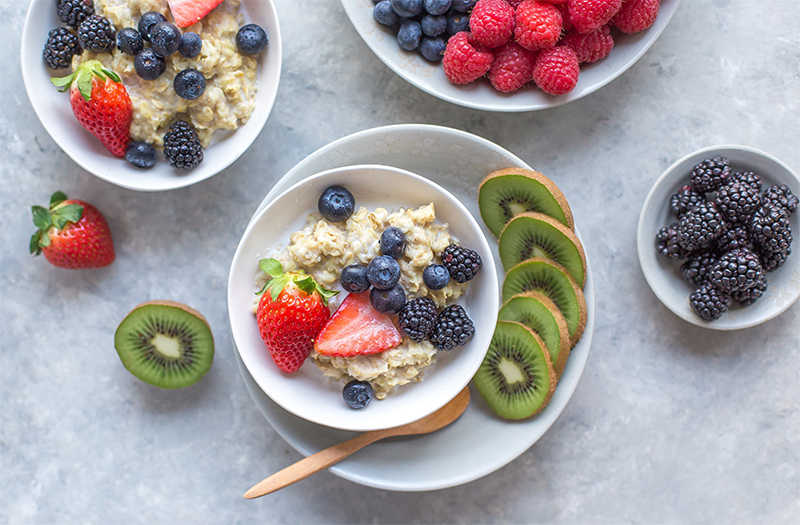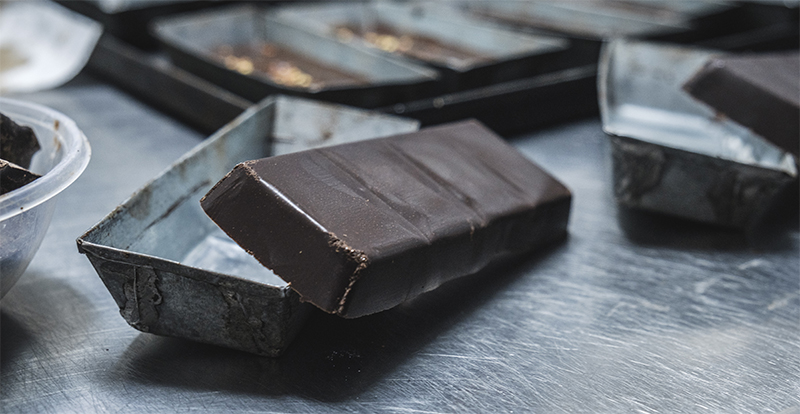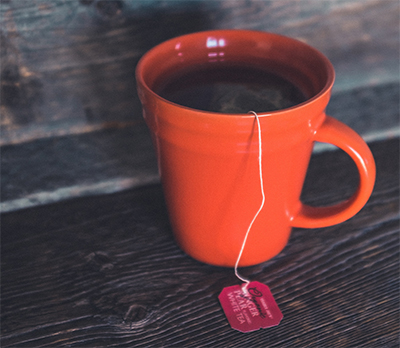How to Reduce Stress? 4 Easy Diet Hacks
Stress can take a toll on your body’s natural defenses and energy levels, but a diet full of the right foods can help reduce the symptoms of stress. The American Psychological Association (APA) has conducted its Stress in America poll since 2007. It turns out Americans are feeling pretty stressed out. In fact, their most recent survey, conducted in late 2017, found 63 percent of Americans are feeling anxious and stressed about the future of the country. Between politics, work, money and personal safety, more and more people are suffering from the side effects of stress. So if you’re wondering how to reduce stress and its symptoms, your diet may be able to play a key role . . .
1. Snack on Mixed Nuts
When we’re stressed out, it depletes our vitamin B levels. Snacking on nuts helps replenish our vitamin B supplies. “B vitamins keep our neurotransmitters in their happy place and help us handle the fight-or-flight stress response,” says Ellen Albertson, Ph.D., R.D., a psychologist in Burlington, Vermont.
Nuts also provide a great source of potassium, which has added health benefits. According to research conducted at Penn State, a couple of servings of potassium-packed pistachios a day can reduce blood pressure and reduce stress symptoms placed on our heart.
2. Fuel up on Oatmeal
 Oatmeal is warm and comforting. Not only does it taste great, but warm oatmeal can reduce levels of stress hormones and can boost levels of the destressing neurotransmitter serotonin, which stimulates a feeling of calmness.
Oatmeal is warm and comforting. Not only does it taste great, but warm oatmeal can reduce levels of stress hormones and can boost levels of the destressing neurotransmitter serotonin, which stimulates a feeling of calmness.
Additionally, research in the Archives of Internal Medicine shows carb-eaters feel calmer than those who eliminated carbs from their daily diet. Our blood sugar levels are influenced by stress hormones. During stressful situations, epinephrine (adrenaline), glucagon, growth hormone and cortisol play a role in our blood sugar levels. During stressful experiences, our body may have more difficulty controlling blood sugar levels, especially for an individual with diabetes.
So be sure to select your carbs wisely, as refined carbs (i.e. pasta and white bread) digest faster and spike blood sugar. Complex carbs, like oatmeal and whole grains, are digested more slowly and don’t spike blood sugar. You can even get creative and add a handful of berries to add extra flavor.
3. Indulge on Dark Chocolate
How to reduce stress with a sweet treat? . . . . Yes, chocolate! Research in the Journal of Proteome Research showed people who ate the equivalent of an average-size candy bar (about 1.4 ounces) of chocolate daily for two weeks had lower cortisol and fight-or-flight hormone levels. Additionally, findings from two recent studies, presented in April at the Experimental Biology 2018 annual meeting in San Diego, show that consuming dark chocolate that has a high concentration of cacao has positive effects on stress levels.
 According to the findings, the chocolate you consume needs to have a cacao percentage of at least 70% in order for the benefits to come through. In the first study, cacao consumption at this percentage was found to “[up-regulate] multiple intracellular signaling pathways involved in T-cell activation, cellular immune response, and genes involved in neural signaling sensory perception.” Meanwhile, the second study found that 70% cacao “enhances neuroplasticity for behavioral and brain benefits.” The findings suggest that consuming 70% cacao on a regular basis can boost your immune system, improve your memory, and reduce your stress levels.
According to the findings, the chocolate you consume needs to have a cacao percentage of at least 70% in order for the benefits to come through. In the first study, cacao consumption at this percentage was found to “[up-regulate] multiple intracellular signaling pathways involved in T-cell activation, cellular immune response, and genes involved in neural signaling sensory perception.” Meanwhile, the second study found that 70% cacao “enhances neuroplasticity for behavioral and brain benefits.” The findings suggest that consuming 70% cacao on a regular basis can boost your immune system, improve your memory, and reduce your stress levels.
Just remember that dark chocolate is a high-calorie food, so be aware of your portions.
4. Sip Some Tea
Researchers from University College London in 2005 studied black tea drinkers. They found that the cortisol levels of those who drank black tea decreased more quickly after a stressful activity then non-tea drinkers. 
Although (caffeinated) black tea was used in the study, caffeine can speed the stress response in many people, so stick to decaf and herbal teas. Drinking herbal teas like chamomile, peppermint or ginger can be wonderfully soothing to the digestive tract, which can help with stress by calming the nervous system in your gut. Barley tea, passionflower and Valerian root teas can also help create a calming effect by reducing stress-related insomnia, anxiety, nervous tension, or anger.
***
Given the climate of the world today, it’s impossible to avoid stress all of the time. When you’re experiencing a stressful situation, choosing the right foods can help you to ameliorate the problem instead of exacerbating it. Even adding a few servings a day of the above mentioned foods can help to reduce the symptoms of stress and boost your mood.
You may also like:
Workplace Wellbeing: Bridging Health & Productivity
Milk – It’s Not The Only Source Of Calcium That “Does A Body Good”